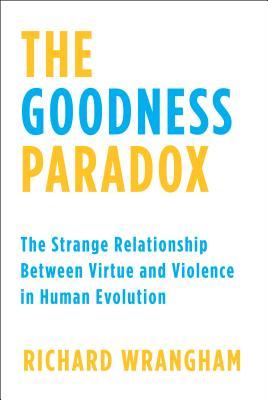What do you think?
Rate this book


377 pages, Hardcover
First published January 17, 2019
The revolution that first brought down the alpha bullies...had given the new leaders extraordinary power. By discovering that they could control even the most imposing fighter, the previously subordinate males found they could further their goals in other ways, too.... Some 300,000 years ago, males discovered absolute power. They had surely been individually dominant to females before the onset of capital punishment.... Afterward, however, the dominance of males...took a new form. It became a patriarchy in the special sense of male dominance based on a system. The system was a network of mature males protecting their mutual interests. (p. 215)
[T]he new mentality of which humanity is rightly proud had darker origins than we normally like to think. The force that bred conscience and condemnation into our ancestors began in the revolution of males competing for a new kind of power. It ended in the tyranny of the cousins with two major kinds of social effect.... It constrains society to follow moral principles that promote cooperation, fairness, and protection from harm....
[I]t also brought a new kind of dominance, because the limited power of a single alpha became the absolute power of a male coalition. (p. 221)
Coalitionary proactive aggression is responsible for execution, war, massacre, slavery, hazing, ritual sacrifice, torture, lynchings, gang wars, political purges, and similar abuses of power. It permits sovereignty as a right over life, caste as a system of casual domination, and guards who make prisoners dig their own graves. It makes kings out of wimps, underlies fidelity to groups, and gives us long-term tyrannies. It has battered our species since the Pleistocene....
It is therefore cheering to remember that in sane individuals proactive aggression is a highly selective behavior that is delicately attuned to context.... Proactive aggression is not produced by individuals in a fit of rage, or in an alcoholic haze, or out of a testosterone-induced failure of cortical control. It is a considered act by an individual or coalition that takes into account the likely costs. It has a strong tendency to disappear when it does not pay. (p. 246)